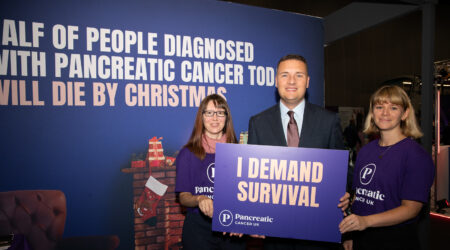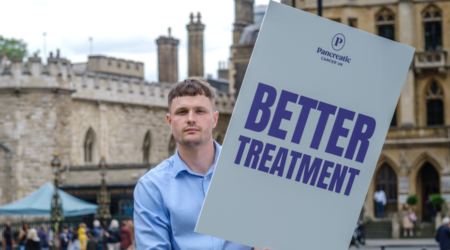The new Government means new opportunities to prioritise pancreatic cancer.
The Department for Health has launched its biggest ever conversation about the future of the NHS.
They’re inviting the public to complete a one question survey to share your or a loved ones’ experience of pancreatic cancer diagnosis, treatment and care.
Complete the survey
You need to register/sign in, then scroll right to the bottom of the NHS webpage and find the button that says “Share your views” – it’s not too easy to spot.
Remember to mention pancreatic cancer throughout your response, and what needs to change to improve survival.
If you have more time, there is also a longer survey you can complete. See our guidance for the longer survey.







